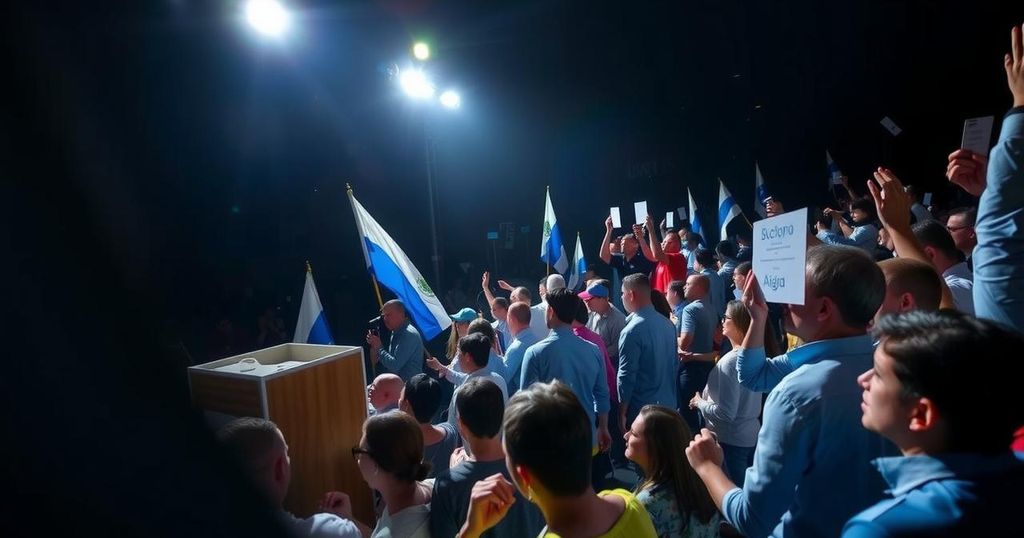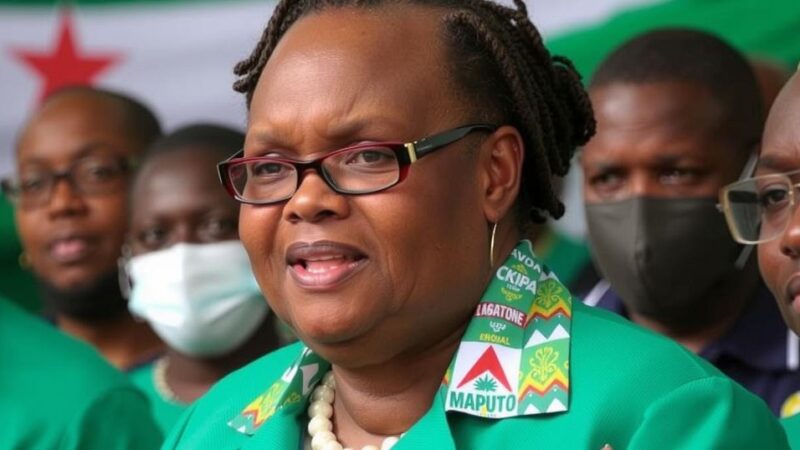The presidential runoff in Uruguay features a tight race between Álvaro Delgado of the National Party and Yamandú Orsi from the Broad Front coalition. Following a first round where neither candidate secured a majority, they are now appealing for undecided voters in a context marked by rising crime and economic concerns. The election’s outcome will be a commentary on Uruguay’s political stability and democratic strength.
Uruguay is entering a critical phase in its electoral process as citizens prepare for a presidential runoff amid a closely contested race. The candidates, Álvaro Delgado representing the ruling National Party and Yamandú Orsi from the left-leaning Broad Front coalition, are vying for leadership after neither obtained a majority in the initial round of voting. The first round saw Orsi’s coalition receiving 44% of the votes, while Delgado’s party managed only 27%. Coupled with additional support from other conservative factions, Delgado now finds himself in a competitive dual with Orsi as they grapple for undecided voters just days before the decisive election.
As the campaigns unfold, analysts have pointed out that the lack of a significant ideological divide has resulted in increased voter indecision. Despite the candidates’ differing visions, key issues such as tax policies and social spending have not sparked fervent public outcry, unlike political scenarios observed in other regions. Both candidates have directed their strategies towards addressing public concerns over rising crime rates, which have become a pressing national issue.
Álvaro Delgado, a seasoned member of the National Party, has pledged to uphold the policies of the current president, Luis Lacalle Pou, emphasizing continuity as a core theme of his campaign. On the opposite end, Yamandú Orsi, a former educator and two-time mayor, seeks to present a refreshing leftist approach, advocating for economic and social reforms without alienating key voter demographics.
As Uruguayans prepare for the polls, they reflect the strength and resilience of the country’s democratic process – a vital component in shaping the national discourse and the future trajectory of governance in Uruguay.
The upcoming presidential election in Uruguay marks a significant moment in the country’s political landscape, as it transitions from the Broad Front coalition’s 15-year governance to a fiercely competitive runoff between two candidates with distinct ideological backgrounds. The context of the election is shaped by recent challenges, including rising crime rates and public discontent regarding economic conditions, presenting both candidates with the opportunity to address these pressing issues and reshape the socio-political environment.
In summary, the runoff election in Uruguay underscores the dynamics of a competitive political landscape where both Álvaro Delgado and Yamandú Orsi must navigate voter concerns and broad consensus on issues. With elements of economic continuity and reform at stake, the outcome of this election will not only determine the presidency but will also reflect the direction of Uruguay’s socio-political narrative in the years to come.
Original Source: apnews.com







